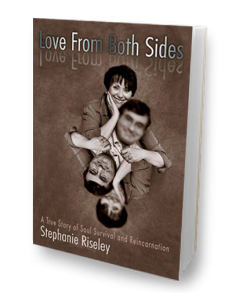
Love in the Time of Tinder
Are you suffering from a broken heart? Ghosted by a handsome hook-up? Lured by a sociopath into believing you’d found the perfect partner?
Join the jilted crowd of broken-hearted lovers. Depression, anxiety, and obsessive-compulsive thinking follow fast behind. Stress, anger, and isolation ensue.
We’re all addicted to long to “fall in love” by the songs we hear, the movies we see, or the Instagram or internet gurus we follow. They guarantee that finding “the one” will solve life’s big problems. When it doesn’t, we feel cheated.
Just like traipsing off into the jungles of Peru or to the comfort of the Pacific Palisades or Topanga to do a “healing journey,” albeit with Ayahuasca, mushroom, or Buffo frog poison. Those drugs will not change your brain long term. Like junk food, it fills you momentarily but doesn’t nourish or change you. You can diet, vomit and poop your heart out, but it won’t heal all the traumas of your past.
When you lose love and you get abandoned or rejected by a lover, you literally get a broken heart. It’s physical. Healing a broken heart or a shattered childhood takes time – and it takes learning to trust and to love yourself first.
What those journeys do, however, is to open the mind/body awareness to the reality that love is the only answer. In so many of the Past Life Regressions that my clients do with me, they get to the end of a life where they might have focused on gaining money, fame, or power and neglected their hearts. They’ve deserted their families or betrayed a lover or friend. Then, their over-soul shows them that they didn’t learn to love. They never trusted anyone enough to love.
They experienced firsthand that love, trust, gratitude, and forgiveness are the currency of the spirit world, and they didn’t need to go to Peru.
Yes, we all long to love and to be loved. It’s in our DNA. But to get love, we must first learn to give love. Love needs to be directed inwardly first, however, and then externally toward others. And therein lies the rub.
Loving yourself seems so difficult and counterintuitive to so many people. Last night, my client, a handsome young man, 34, who holds a PhD in molecular biology, said, “I can’t even imagine what it feels like to love myself; that feels shameful. Selfish.”
That’s a faulty belief made by a fragile child. Children can be hypnotized into thinking their needs and wants shouldn’t count. To be a good person, they must put everyone else first. They must believe what their parents, their tribe, or their religion believes. Maybe they think that being born a human is an original sin or that their nature is innately evil, and their own sexual feelings are shameful. Those are typical Sky-God beliefs.
For many people, those beliefs are the origin of many childhood traumas. In brain science terms, they could not create the neuro-networks of love that all humans need to thrive. Love is an electrical energy that people get from parents, lovers, dogs, and sometimes, even elusive cats.
Brian Weiss, MD, my kind teacher, wrote a book called: “Only Love is Real.” In it, he recounts stories of people who lost love and then found it. My own book, “Love From Both Sides, A Story of Reincarnation,” tells the same story.
But in our culture, loving isn’t valued. One of my beautiful clients, a new mother in her 30s who was once head of a famous internet firm, decided to stay home and take care of her two young girls, who are under two. Her friends criticize her for prioritizing her children, yet she’s the only mommy those babies have. Her daughters will grow up with secure attachment because they have a loving mommy. People who aren’t as lucky might develop what’s called an anxious-avoidant disorder.
So what, if like me, you didn’t get a loving parent?
First, you must listen to and change your own thinking about yourself.
Second, you must heal the abandoned child within. The child whose parents might have been too busy, poor, uninformed, or broken to give the love that a child needs to thrive.
To help my clients heal, in hypnosis regression therapy, I lead them into becoming the loving parents they didn’t get. That way, they change negative childhood traumatic memories into memories that help them. That changes the neuropathways and lays down new memories—brain science.
Change your thinking, and it will change your brain. It’s mind-body medicine in action.
If you need help, please give me a call. (323) 933-4377
Sending you love,
Stephanie
My Audios & Ebooks
All Audios and Ebooks are Instantly Downloadable










